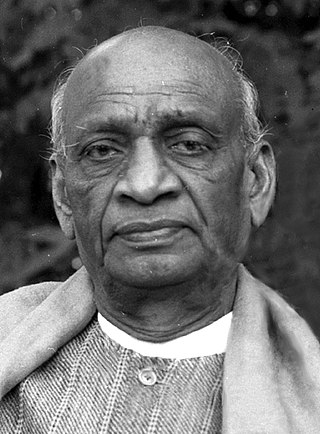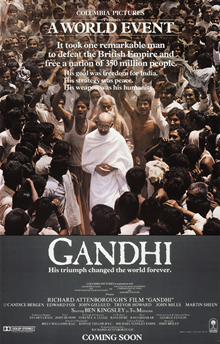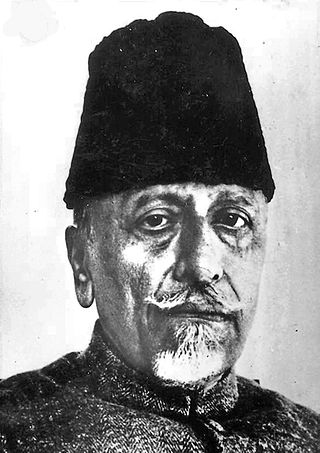
Jawaharlal Nehru was an Indian anti-colonial nationalist, secular humanist, social democrat, author and statesman who was a central figure in India during the middle of the 20th century. Nehru was second only to Mahatma Gandhi in leading the Indian nationalist movement in the 1930s and 1940s. Upon India's independence from Britain in 1947, he served as the country's first prime minister for 16 years. Nehru championed parliamentary democracy, secularism, science and technology during the 1950s, influencing India's arc as a modern nation. In international affairs, he is well-known as one of the Founders of the Non-aligned Movement and, concomitantly, for steering India clear of the two blocs of the Cold War. A coveted author, the books he wrote in prison, such as Letters from a Father to His Daughter (1929), An Autobiography (1936) and The Discovery of India (1946), have been read and deliberated upon around the world.

Vallabhbhai Jhaverbhai Patel, commonly known as Sardar Vallabhbhai Patel, was an Indian independence activist and statesman who served as the first Deputy Prime Minister and Home Minister of India from 1947 to 1950. He was a senior leader of the Indian National Congress, who played a significant role in the Indian independence movement and India's political integration. In India and elsewhere, he was often called Sardar, meaning "Chief" in Hindi, Urdu, Bengali and Persian. He acted as the Home Minister during the political integration of India and the Indo-Pakistani War of 1947.

Morarji Ranchhodji Desai was an Indian independence activist and politician who served as the Prime Minister of India between 1977 and 1979 leading the government formed by the Janata Party. During his long career in politics, he held many important posts in government such as Chief Minister of Bombay State, Home Minister, Finance Minister and 2nd Deputy Prime Minister of India.

Gandhi is a 1982 epic biographical film based on the life of Mahatma Gandhi, a major leader in the Indian independence movement against the British Empire during the 20th century. A co-production between India and the United Kingdom, the film was directed and produced by Richard Attenborough from a screenplay written by John Briley. It stars Ben Kingsley in the title role. The biographical film covers Gandhi's life from a defining moment in 1893, as he is thrown off a South African train for being in a whites-only compartment and concludes with his assassination and funeral in 1948. Although a practising Hindu, Gandhi's embracing of other faiths, particularly Christianity and Islam, is also depicted.

Syama Prasad Mookerjee was an Indian barrister, educationist, politician, activist, social worker, and a minister in the state and national governments. Noted for his opposition to Quit India movement within the independence movement in India, he later served as India's first Minister for Industry and Supply in Prime Minister Jawaharlal Nehru's cabinet after breaking up with the Hindu Mahasabha. After falling out with Nehru, protesting against the Liaquat–Nehru Pact, Mukherjee resigned from Nehru's cabinet. With the help of the Rashtriya Swayamsevak Sangh, he founded the Bharatiya Jana Sangh, the predecessor to the Bharatiya Janata Party, in 1951.
Events in the year 1966 in the Republic of India.
Events in the year 1949 in India.
Events in the year 1932 in India.
Events in the year 1983 in the Republic of India.

Abul Kalam Ghulam Muhiyuddin Ahmed bin Khairuddin Al-Hussaini Azad ; 11 November 1888 – 22 February 1958) was an Indian independence activist, writer and a senior leader of the Indian National Congress. Following India's independence, he became the First Minister of Education in the Indian government. He is commonly remembered as Maulana Azad; the word Maulana is an honorific meaning 'Our Master' and he had adopted Azad (Free) as his pen name. His contribution to establishing the education foundation in India is recognised by celebrating his birthday as National Education Day across India.

Rajendra Prasad was an Indian politician, lawyer, journalist and scholar who served as the first president of India from 1952 to 1962. He joined the Indian National Congress during the Indian independence movement and became a major leader from the region of Bihar. A supporter of Mahatma Gandhi, Prasad was imprisoned by British authorities during the Salt Satyagraha of 1930 and the Quit India movement of 1942. After the constituent assembly 1946 elections, Prasad served as 1st Minister of Food and Agriculture in the central government from 1947 to 1948. Upon independence in 1947, Prasad was elected as President of the Constituent Assembly of India, which prepared the Constitution of India and which served as its provisional Parliament.
Events in the year 1942 in India.

Direct Action Day was the day the All-India Muslim League decided to take a "direct action" using general strikes and economic shut down to demand a separate Muslim homeland after the British exit from India. Also known as the 1946 Calcutta Riots, it soon became a day of communal violence in Calcutta. It led to large-scale violence between Muslims and Hindus in the city of Calcutta in the Bengal province of British India. The day also marked the start of what is known as The Week of the Long Knives. While there is a certain degree of consensus on the magnitude of the killings, including their short-term consequences, controversy remains regarding the exact sequence of events, the various actors' responsibility and the long-term political consequences.

Aruna Asaf Ali was an Indian educator, political activist, and publisher. An active participant in the Indian independence movement, she is widely remembered for hoisting the Indian National flag at the Gowalia Tank maidan, Bombay during the Quit India Movement in 1942. Post-independence, she remained active in politics, becoming Delhi's first Mayor.

Muhammad Ali Jauhar Khan was an Indian Muslim freedom activist, one of the founders of All-India Muslim League, a pre-eminent member of Indian National Congress, journalist and a poet, a leading figure of the Khilafat Movement and one of the founders of Jamia Millia Islamia.

The Royal Indian Navy mutiny or revolt, also called the 1946 Naval Uprising, is a failed insurrection of Indian naval ratings, soldiers, police personnel and civilians against the British government in India. From the initial flashpoint in Bombay, the revolt spread and found support throughout British India, from Karachi to Calcutta, and ultimately came to involve over 10,000 sailors in 56 ships and shore establishments. The mutiny failed to turn into a revolution because sailors were asked to surrender after the British authorities had assembled superior forces to suppress the mutiny.
Events in the year 1924 in India.

The Noakhali riots were a series of semi-organized massacres, rapes and abductions, combined with looting and arson of Hindu properties, perpetrated by the Muslim community in the districts of Noakhali in the Chittagong Division of Bengal in October–November 1946, a year before India's independence from British rule.
Communal riots occurred in Bihar, India from 24 October to 11 November 1946, in which Hindu mobs targeted Muslim families. The riots were triggered by the Great Calcutta Killings, as well as the Noakhali riots earlier that year. Mahatma Gandhi declared that he would fast unto death if the riots did not stop. The riots were part of a sequence of communal violence that culminated in the partition of India.

The Prince of Wales riots occurred in Bombay, British India, between 19 and 22 November 1921 during the visit of Edward, Prince of Wales. The visit came during the non-cooperation movement protests for Indian self-rule, led by Mahatma Gandhi and the Indian National Congress. Gandhi had allied the mainly Hindu Congress with the Muslim Khilafat Movement, who were concerned about the possibility that the British might depose the Ottoman Caliph. Gandhi called for his supporters to boycott the prince's visit and carry out a general strike (hartal).













